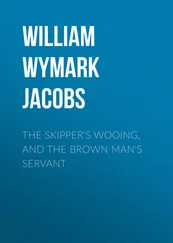With this strange admonition, Canaris hastily left the dungeon and the guard rebolted the door.
"Is the fellow crazy?" said Melton. "What can he mean to do?"
"Crazy?" rejoined Guy. "No; I have a strange faith in that man, Melton. Do just as he tells you and see what turns up tonight."
With much grumbling Melton assumed the part of a very sick man. He rather overdid the thing, in fact, for twice the guard opened the door and looked in. About noon food was brought, and from that time no one came near them.
The minutes dragged along like hours. They tried to forget the awful fate that stared them in the face, but in spite of the Greek's encouraging words the future looked very black.
At last the feeble light in their dungeon began to fade away, and soon they were in darkness.
"The fellow will never come back," said Melton bitterly. "It's all up with us, Chutney, so don't try to raise any more false hopes."
But Guy refused to give up, and his faith was rewarded. Quick footsteps approached the dungeon, the bolts rattled, and Canaris entered with a rude lamp and a leather case, which he placed carefully on the floor.
Then he pulled a paper from his pocket and waved it gleefully.
"See," he cried, "a permit from Rao Khan, admitting me to the prison at all times. I told him that your wound was very bad, that the Arab doctor had failed to help you, and that I knew enough of English surgery to cure you if he would allow it. Rao Khan reluctantly consented, and here I am."
He listened intently for a moment, glanced round the dungeon, and then went on in a low, excited tone:
"Get close together. I have something important to tell you."
They squatted down in a group on the straw, and with a strange, exultant sparkle in his eyes, Canaris began:
"When I came to Harar two years ago this very cell held a white slave, like yourselves an Englishman. He was an old man, with long white hair and beard, and had been so long in slavery that he had forgotten his own name and could scarcely speak the English tongue.
"My duties then were to carry food and drink to the slaves, and before long I was on intimate terms with the old Englishman. He was very ill, and the Arab doctors made him no better. Perhaps it was old age that was the trouble, but at all events he died two months after I came. At different times he had told me the story of his life, and that is what I am going to tell you now.
"He had been thirty years in slavery. How and where he had been captured he could no longer remember. His mind was a blank on that point. But one thing he told me that is important. For twenty years he had lived among the Gallas in a village fifty miles to the south of Harar, and it was a few years after he had been brought there that he nearly succeeded in making his escape.
"He had often heard from the natives of an underground river that was said to exist, and which emptied either into the River Juba or into the sea. The tales concerning the river were many and strange, but the chief of the Gallas assured him that at one time a tribe of natives had lived in the mouth of a huge cavern which gave access to the river."
Конец ознакомительного фрагмента.
Текст предоставлен ООО «ЛитРес».
Прочитайте эту книгу целиком, купив полную легальную версию на ЛитРес.
Безопасно оплатить книгу можно банковской картой Visa, MasterCard, Maestro, со счета мобильного телефона, с платежного терминала, в салоне МТС или Связной, через PayPal, WebMoney, Яндекс.Деньги, QIWI Кошелек, бонусными картами или другим удобным Вам способом.












